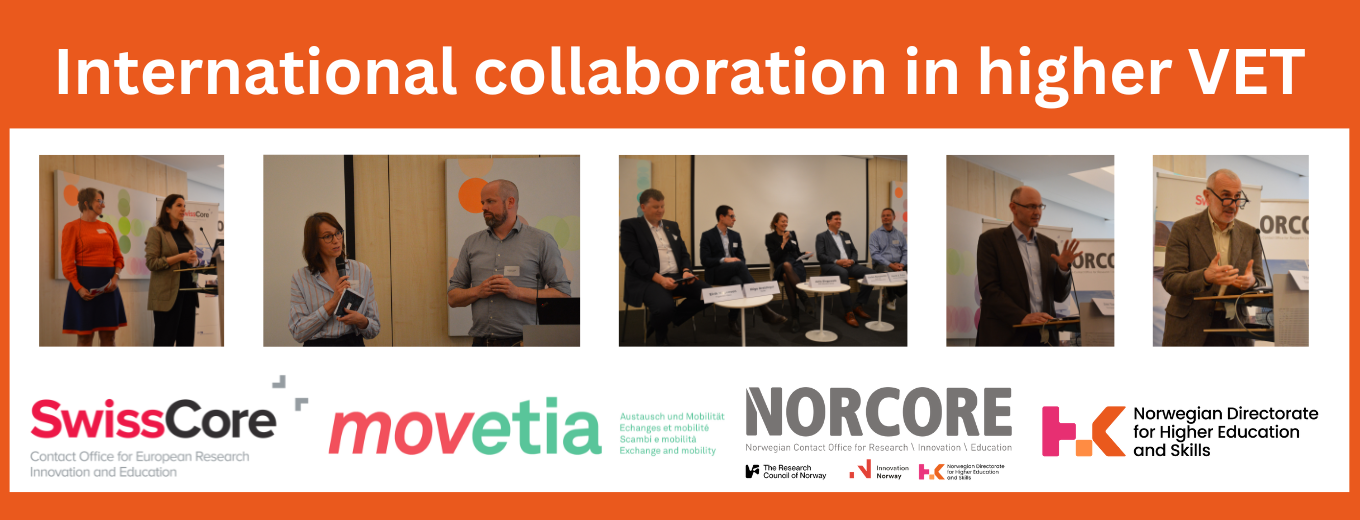SwissCore and Norcore, together with Movetia and HK-Dir, held a conference to shed light on the strength of international cooperation in the higher VET sector.
On 27 May 2024, SwissCore and Norcore, in collaboration with Movetia, the Swiss Exchange and Mobility Agency, and HK-dir, the Norwegian Directorate for Higher Education and Skills, hosted a conference on international collaboration in higher vocational education and training (HVET), also known as continuing VET. The Central Denmark EU Office, the Basque EU Delegation and EARLALL contributed to the success of the event. Delegations from VET schools from the Basque Country, Denmark, Germany, Norway and Switzerland travelled to Brussels to share their experiences and strengthen collaborations.
The speakers discussed the role of the HVET sector and the potential of European VET cooperation in addressing the skills gap created by the green transition or by demographic changes in society. By its flexible nature, HVET schools are close to the employers, and cater both to new students as well as to people who work, and who seek reskilling and upskilling opportunities.
To set the scene, Marieke Vandeweyer, Team Leader and Senior Policy Analyst at OECD, provided insights into the OECD’s work on HVET and what the differences and similarities between the HVET sectors across the OECD countries are. In certain OECD countries, HVET is classified as a short-cycle tertiary programme or bachelor level programme, in others it is a further qualification directly linked to the VET sector. This great diversity of how HVET is organised across Europe is on the one hand rich for mutual learning but can, on the other hand, also be a hurdle for European collaboration.
Boudewijn Grievink, Programme Manager of Internationalisation at the Katapult Network in the Netherlands, presented the potential for HVET institutions to engage in Centres of Vocational Excellence. These centres are networks of partners that develop local skills ecosystems to provide high quality vocational skills, and contribute to regional innovation and economic development. They offer HVET institutions access to broad European knowledge, research in a specific sector or topic and networking opportunities. Iñigo Araiztegui from TKNIKA, the Basque Applied VET research centre, shed light on their efforts in internationalisation and collaborative VET capacity-building.
The European Commission was represented by Jan Varchola, Team Leader at the Directorate-General for Employment and Skills (DG EMPL), and Vito Borelli, Team Leader at the Directorate-General for Education (DG EAC). They stressed the importance that the EU puts on a strong VET education and how the Commission supports European VET collaboration via Erasmus+. The participation of colleagues from the European Commission was much appreciated by the national delegations. A panel of representatives from the different HVET schools used the opportunity to not only highlight their ongoing international work but they also brought challenges and proposals to the table of how European collaboration of HVET could be further fostered. Given the specific place of HVET institutions and the heterogeneity across Europe, the panel of VET schools called for a clarification of the place of HVET in Erasmus+: They need to find their place within the larger categories of vocational training as well as higher education, as they may find themselves in between these two levels.

